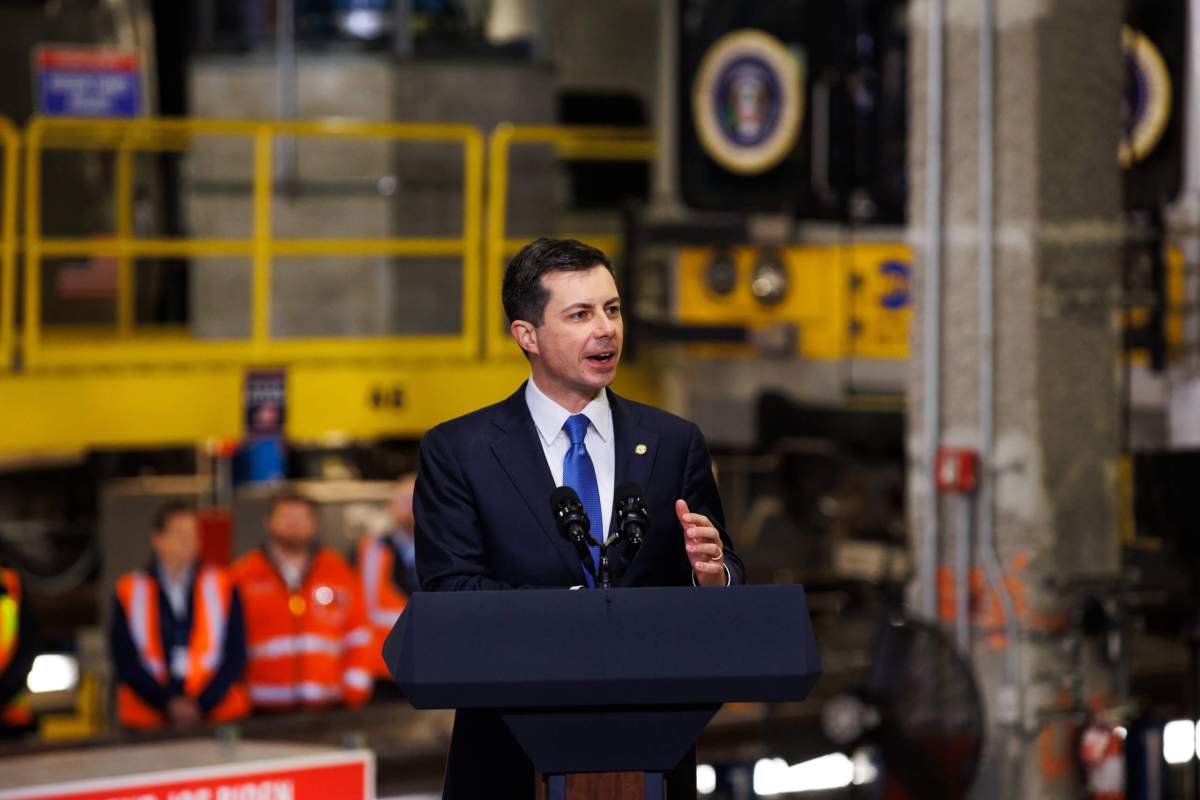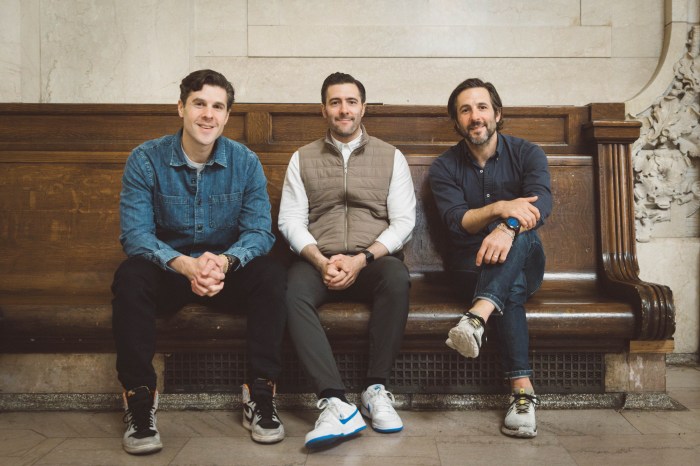The Biden administration still has no firm timeline on when it may give the final sign-off on congestion pricing, Transportation Secretary Pete Buttigieg said Thursday, forecasting further delays for the program four years after it was approved by Albany.
Congestion pricing — which will levy charges on motorists entering Manhattan below 60th Street, with the aim of reducing car traffic in the region’s central business district and providing billions in funding for mass transit — was approved by state lawmakers in 2019 but has been mired in delays, as state and federal regulators toil in environmental review and interest groups attempt to tweak the law to secure exemptions.
Approval by the Federal Highway Administration is the final roadblock to clear by the Metropolitan Transportation Authority before it can start implementing and collecting tolls. But at a Thursday press conference with Governor Kathy Hochul, celebrating $21 million in federal infrastructure funding to repair the Castleton-on-Hudson Bridge upstate, Buttigieg said the feds are still neck-deep in the complicated environmental review process, and had no news to share on a timeline for approval.
“We’re talking about something that is really new in terms of scope and scale, relative to processing environmental reviews on something that we maybe do hundreds of in a year, like a bridge project for example,” said Buttigieg, formerly the mayor of South Bend, Indiana and a Democratic presidential candidate. “But certainly, the Federal Highway Administration is working hard on that process. I don’t have any news to make about it today, but that’s certainly one that’s getting a lot of good attention and resources to make sure the process is followed and done well.”
While New York’s program would be the first in the United States, the concept is not new internationally. Cities like London, Milan, Stockholm, and Singapore all have a similar program in place. In London, the program was first formally proposed by Ken Livingstone during his 2000 campaign for mayor, and by 2003 it had been implemented.
The MTA originally intended for tolls to be in place by 2021, but the lofty ambitions were scuttled by the COVID-19 pandemic and a lack of interest from the Trump administration. Last summer, the transit authority released its 800-page environmental assessment that pegged tolls anywhere from $9-23 for motorists, with transit honchos expecting the program to cut auto traffic in the zone by up to 20% and raise up to $1 billion per year.
The agency would issue bonds against the toll revenue that it says would generate up to $15 billion for improvements to modernize the transit system’s ancient infrastructure, including making the subway accessible for those with disabilities, upgrading Great Depression-era train signals, and building transit megaprojects like the Second Avenue Subway.
But while the Biden administration started the environmental review left on the table by Trump, it has become as backed up as a city bus attempting to transport passengers across town. One of the feds’ key hangups is whether the program will cause a buildup of traffic in the outer boroughs, particularly the Bronx, which the MTA’s environmental assessment noted might see higher rates of emissions; the transit agency has offered to pay tens of millions of dollars to clean up truck emissions in the Boogie-Down, Streetsblog reported.
While the public comment period has ended, lobbying is still in full force as seemingly everyone clamors for an exemption, from cabbies and rideshare drivers to Manhattan residents and city workers driving their personal vehicles. Meanwhile, Republicans from New York and New Jersey, joined by Garden State Democrat Josh Gottheimer, have formed a caucus on Capitol Hill solely to kill the proposal and are lobbying the feds to undertake an even longer and more costly environmental review procedure.
Once federal approval is secured, the MTA’s Traffic Mobility Review Board will issue final recommendations for toll rates and exemptions, which would then have to be approved by the MTA Board.
At this point, the MTA is not expecting to implement the program until, at the earliest, the second quarter of 2024, an MTA spokesperson confirmed to amNewYork Metro. The delay means the MTA will have to forego about $250 million in capital money for Fiscal Year 2024. The scope of the agency’s $55 billion capital plan is dependent on revenue from congestion pricing.

































